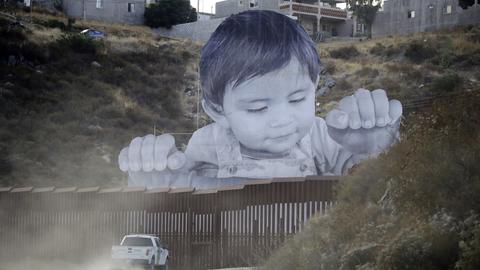Help Defend Asylum
CGRS relies on the generous support of people like you to sustain our advocacy defending the human rights of refugees. Make a gift today!

November 7, 2017 - On October 8, the White House presented to Congress its “Immigration Principles and Priorities,” a list of hardline policy proposals demanded in exchange for a legislative solution to protect Deferred Action for Childhood Arrivals (DACA) recipients. If enacted, the White House’s proposed immigration policies would severely undermine access to refugee protection in the United States, imperiling the lives of those fleeing violence and persecution in their home countries. Among other things, they would:
- Restrict asylum eligibility to preclude from protection many individuals with meritorious claims;
- Prevent the release of detained asylum seekers, subjecting survivors of violence and persecution to the retraumatizing conditions of prolonged immigration detention;
- Chip away at protections for unaccompanied children seeking protection at our borders, curtailing essential screening processes and placing child asylum seekers in adversarial immigration court proceedings; and
- Eliminate critical custody standards for child immigrants and asylum seekers held in government-run shelters and immigration detention facilities.
The Trump Administration attempts to justify its extremist platform with a myriad of false claims about immigrants and asylum seekers. For example, the White House attributes increases in asylum applications to weak legal standards and the proliferation of fraudulent asylum claims, and claims that legal loopholes have driven the recent uptick of unaccompanied Central American children at our Southern border. Well-documented crisis levels of violence in Central America, however, explain the flight of children and the increasing numbers of asylum applications from the region. Indeed, since 2009, the numbers of Central American asylum claims have gone up drastically in Mexico, Belize, Costa Rica, Nicaragua, and Panama – reflecting that a regional humanitarian crisis, and not fraud, explains the increase. Moreover, it remains difficult to secure asylum in the United States, even for those with strong claims, and allegations of widespread asylum fraud are unfounded.
Following the release of the White House principles, U.S. Attorney General Jeff Sessions traveled to the headquarters of the Executive Office of Immigration Review (the agency within which the immigration courts and appellate tribunal are located), in Falls Church, Virginia. There he delivered a speech that grossly misrepresented the asylum process, repeating the false claims made in the Administration’s policy proposals and characterizing asylum seekers as opportunists gaming the system. Notably, Sessions named race, religion, nationality, and political opinion as legitimate grounds for asylum, but failed to acknowledge that U.S. law, consistent with the 1951 Refugee Convention and its 1967 Protocol, also grants protection to individuals fleeing persecution based on their membership in a particular social group. The particular social group ground was intended to provide protection to individuals not protected by the other grounds, and is often the basis for claims raised by women fleeing gender persecution, or LGBT individuals fleeing persecution based on their sexual orientation or gender identity.
The White House’s policy proposals (and Sessions’ posturing) fail to address any of our immigration system’s actual shortcomings, instead unconscionably furthering an anti-immigrant, white nationalist agenda. These proposed policies would undeniably result in the deportation of countless asylum seekers to countries of origin where they face grave harm, flying in the face of our most cherished values of due process and protection for refugees.
The public overwhelmingly favors just, humane immigration reform. Congress must reject the White House’s hateful “principles” and move forward with a clean Dream Act that provides a permanent solution for the 800,000 young recipients of DACA, without endangering and scapegoating immigrant and refugee communities.
Photo Credit: Gregory Bull/AP
 Get help
Get help Log In
Log In




